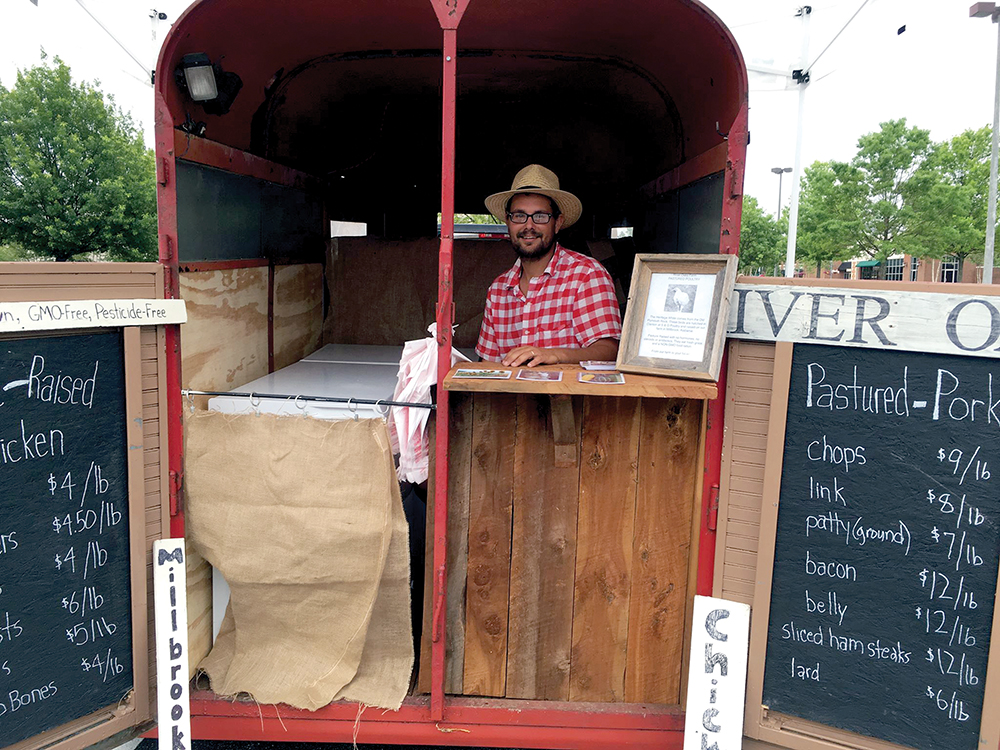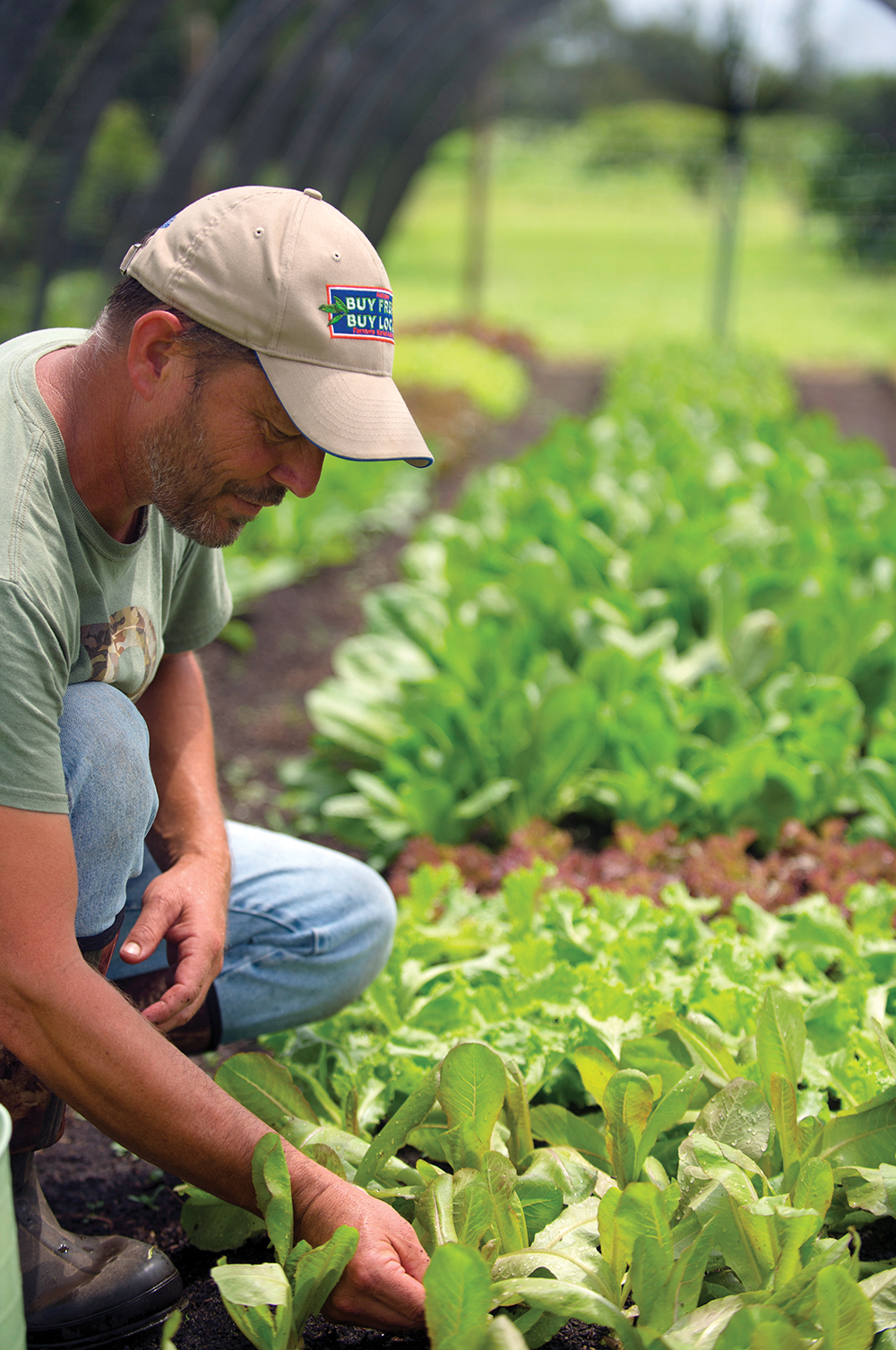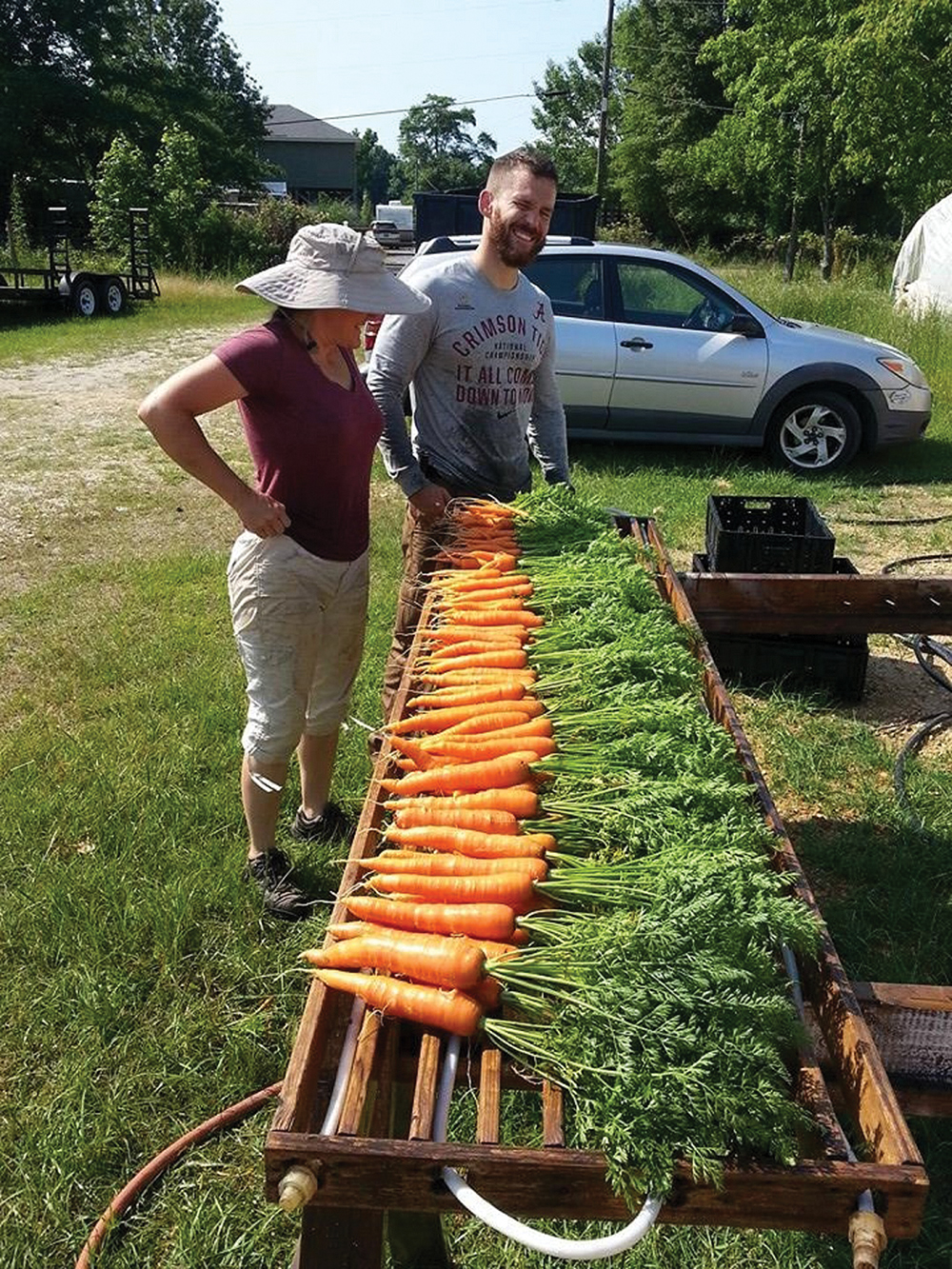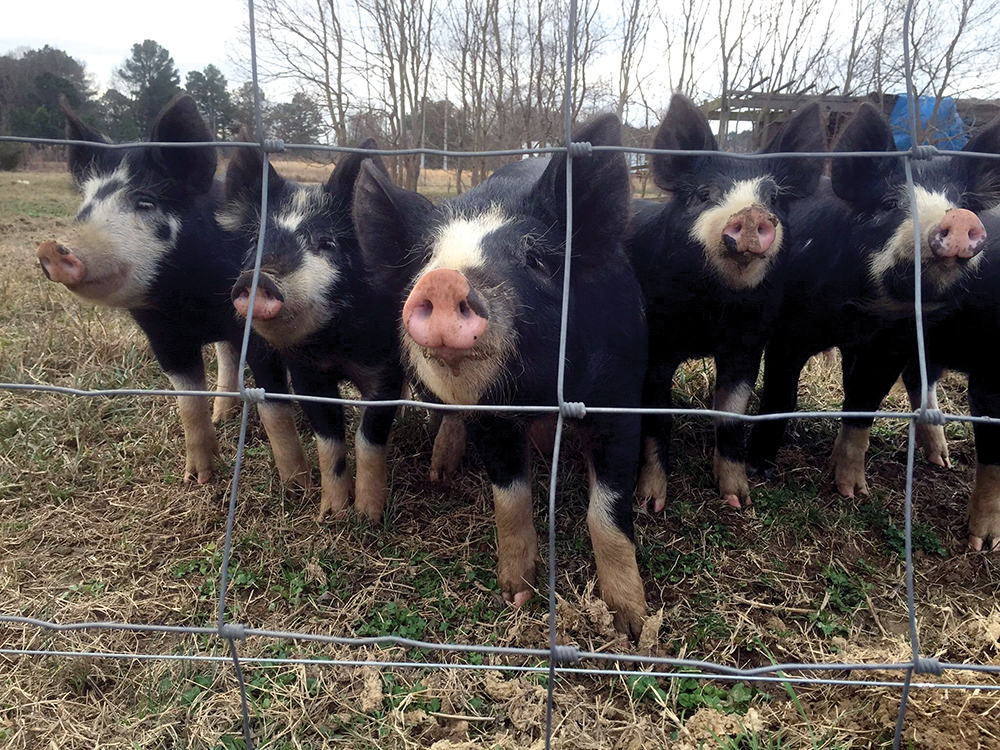
PHOTO COURTESY OF RIVER OAKS FARM
Farmers see increased interest in natural growing methods
By M.J. Ellington
An Elmore County farmer said he wanted a theological reason to explain his career choice, so he got a master’s degree from Duke Divinity School so he could explain his decision.
“I felt called to farm and I needed to have a theological basis for my decision,” Charles Walters said. The son of cattle farmers in Linden, Walters grew up hearing his parents talk about the challenges of his career choice.
Walters bought a former brick manufacturer’s worn-out clay field near the Alabama River. Years of clay and soil removal by the brick company had left the property lacking in nutrients to support healthy plant and animal life.
Four years ago, Walters began rebuilding the land with truckloads of ground pecan shell compost, humus and manure to make the soil healthy. Now Walters grows produce and raises cattle and chickens to sell on the 28-acre organic River Oaks Farm, now a certified organic operation.

Photo by Albert Cesare
Richard Dean observed small farmers’ ancient growing practices while he and his wife, Jodi, were teachers in China. Now Dean and his business partner, Tyson Rogers, own five-acre Gold Branch Farm near Deatsville, a member of Central Alabama EC. They grow lettuce and other leafy produce, vegetables and fruit trees with natural growing methods and no artificial chemicals.
Dean said Alabama farmland is often thin as a result of intense heat and many years of farming. It normally takes about seven years with natural growing methods for the artificial chemicals to be filtered out of the soil. “Compost is our number No. 1 thing to help build healthy soil that retains nutrients and moisture that often washes away from soil that is unhealthy,” he says.
In North Alabama, soil scientist Karen Wynne agrees. She puts organic farming methods she teaches to practice in the food her family grows on 25-acre Rosita’s Farm near Hartselle, a member of Joe Wheeler EMC. Wynne also owns Crotovina, a company that provides technical assistance, planning and development support to small farms across the Southeast.
At all three operations, the farmers emphasize building the soil naturally, practicing minimal tilling and planting fill crops that nourish the soil and retard weed growth in months between growing seasons. Their methods are tools that even people with tiny backyard gardens can use to have healthy soil without artificial chemicals.

Kirk Iverson, an Auburn-based soil scientist who works with Auburn University and the U.S. Department of Agriculture on sustainable farming projects, said Alabama’s hot weather makes farming a challenge.
“The state’s intense heat can break down the organic matter that is the key to healthy soil,” Iverson says. “The key things to make our soil healthy are organic matter and good farming practices. It’s also important to test the soil to know any nutrients you may need to add.”
Both Iverson and Wynne said it’s better to do minimal tilling instead of stripping away all spent crops or weeds from previous growing seasons, and to mulch or plant cover crops. Minimal tilling helps vegetation decompose naturally between growing seasons while fill crops hold moisture and nutrients and reduce erosion, they said.
Wynne says soil is “the earth’s natural carbon dioxide filtration system, it feeds us and it can help mitigate climate change. We need to look at long-term soil sustainability.”
In town, Wynne says property owners can have healthier soil by setting the lawn mower to cut the grass a little higher, and planting low-growing plants that will help keep nutrients in the soil.
The farmers from Gold Branch and River Oaks sell what they grow at local farmers markets, helping to meet a growing consumer demand for food grown locally.
U.S. Department of Agriculture figures show that the number of farmers markets nationally increased 93.3 percent between 2006 and 2014. Agriculture and Industries Commissioner John McMillan said in Alabama, farmers markets increased from 17 statewide in 1999 to 164 today.
As interest in farmers market shopping has increased, so have the number of small, natural growing farms. In a state where large commercial farms became the norm in the past 20 years, small family-owned operations seemed at risk of dying out. But the consumer push to eat locally grown and organic foods has helped increased interest in the industry in Alabama.
Iverson, Wynne and Walters are on the governing board of the Alabama Sustainable Agriculture Network. Founded in 2001, ASAN is a resource for more than 2,000 farms, ranches, nonprofit organizations, government agencies and households interested in sustainable agriculture.
Learn more about ASAN at www.asanonline.org or call 256-743-0742.





